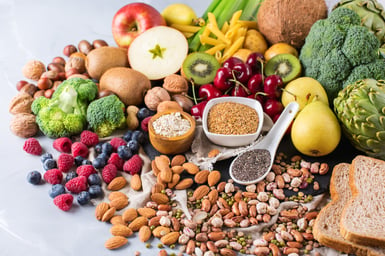 What you eat before hitting the gym can significantly impact your performance and recovery. The right pre-workout nutrition can help fuel your workout, prevent fatigue, and optimize results. Here’s a guide on what gym-goers should consider eating before a workout.
What you eat before hitting the gym can significantly impact your performance and recovery. The right pre-workout nutrition can help fuel your workout, prevent fatigue, and optimize results. Here’s a guide on what gym-goers should consider eating before a workout.Timing Your Pre-Workout Meal
Timing is crucial when it comes to pre-workout nutrition. Aim to eat 30 to 60 minutes before your workout. This allows your body some time to digest and utilize the nutrients for energy without feeling too full or sluggish.
Carbohydrates: Your Primary Fuel Source
Carbohydrates are your body's preferred source of energy, especially during high-intensity workouts. Aim for 30-45 grams of easily digestible carbs before your workout. Carbs help maintain blood glucose levels and maximize glycogen stores, which are essential for sustained energy. Good options include a banana, a slice of whole-grain bread with honey, or a handful of pretzels.
Moderate Protein for Muscle Support
Including a moderate amount of protein in your pre-workout meal can help support muscle repair and growth. Consuming around 10-20 grams of protein before your workout provides your muscles with the amino acids they need to begin the recovery process even before you start exercising. This can enhance muscle protein synthesis and improve overall workout performance. Opt for sources like a hard-boiled egg, a couple of slices of turkey, string cheese, or a small portion of cottage cheese. These options are easy to digest and work well alongside carbohydrates to fuel your workout.
Low Fat for Quick Digestion
While fats are an essential part of your diet, they should be limited before a workout. Fat slows digestion, which can make you feel sluggish and uncomfortable during exercise. Stick to low-fat options and save the healthy fats for your post-workout meal.
Keep Fiber in Check
Fiber is crucial for overall health, but too much fiber right before a workout can cause gastrointestinal discomfort. Foods high in fiber take longer to digest and can lead to bloating or cramping during exercise. Opt for lower-fiber options like pretzels, a bit of granola, or rice cakes.
Hydration is Key
Don’t forget about hydration. Drink 16-20 ounces of water about two hours before your workout and another 8-10 ounces 20 minutes before starting. Proper hydration ensures optimal performance and helps prevent dehydration-related issues like cramps and dizziness.
Sample Pre-Workout Snacks
- Banana with a small handful of almonds: Provides a balance of carbs and protein without too much fat or fiber.
- Whole-grain toast with honey and a slice of turkey: Combines carbs and protein, low in fat, and easy to digest.
- Pretzels with a low-fat cheese stick: Provides a good mix of carbohydrates and protein without adding too much fat.
Choosing the right pre-workout nutrition can make a big difference in your gym performance. Aim for a balanced meal that’s high in carbs, moderate in protein, low in fat, and easy to digest. Remember, what works best can vary from person to person, so it may take some experimenting to find your ideal pre-workout snack. Listen to your body and adjust as needed to fuel your workouts effectively.
Fuel right, perform better, and enjoy your workouts to the fullest!
If you need assistance in finding your ideal pre-workout snack, feel free to contact Michael Horner, RD, LD.


 You’ve probably heard the saying that “not all carbohydrates are bad,” but how do you differentiate between good and not-so-good for you? When it comes to carbohydrates, in order to identify which type is best, it’s important to first understand the
You’ve probably heard the saying that “not all carbohydrates are bad,” but how do you differentiate between good and not-so-good for you? When it comes to carbohydrates, in order to identify which type is best, it’s important to first understand the 
 Come on. We've all heard this before—from friends, from coworkers, and possibly from our own mouths. I swear, salads are easily the most famous “diet food.” Why is that? Do we really have to eat salads to lose weight, clean out our “pipes,” or be healthy? In this blog I break down each of these claims and then talk about ways to improve your veggie game!
Come on. We've all heard this before—from friends, from coworkers, and possibly from our own mouths. I swear, salads are easily the most famous “diet food.” Why is that? Do we really have to eat salads to lose weight, clean out our “pipes,” or be healthy? In this blog I break down each of these claims and then talk about ways to improve your veggie game!
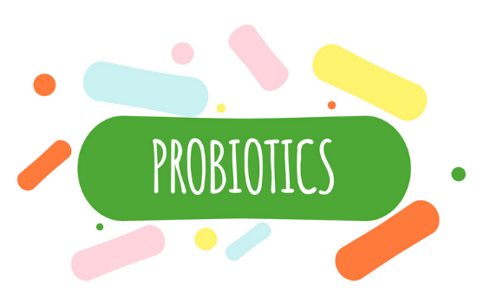 “Take a probiotic; it helps with your gut.” We have all heard it from friends, doctors, and Registered Dietitians. Is it really that simple, though? It is no secret that probiotics really do help with a variety of gastrointestinal (GI) issues. However, did you know that there are specific strains of probiotics that help with specific symptoms, and while one strain may help with one GI symptom, it may not help with another? Not all probiotics are created equal, and not all supplements labeled “probiotic” will yield health benefits.
“Take a probiotic; it helps with your gut.” We have all heard it from friends, doctors, and Registered Dietitians. Is it really that simple, though? It is no secret that probiotics really do help with a variety of gastrointestinal (GI) issues. However, did you know that there are specific strains of probiotics that help with specific symptoms, and while one strain may help with one GI symptom, it may not help with another? Not all probiotics are created equal, and not all supplements labeled “probiotic” will yield health benefits.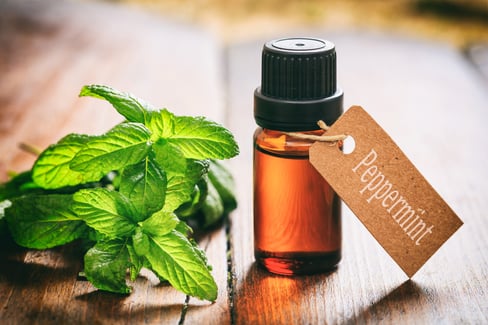 Peppermint oil is a commonly used nutrition
Peppermint oil is a commonly used nutrition 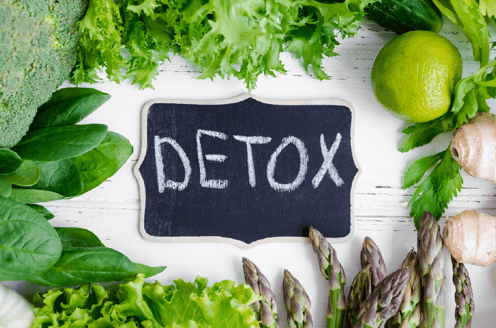 I’m sure you have seen or read about celebrities doing detox diets and cleanses before awards shows. Maybe you have thought about trying one of these crazy and wacky things yourself. Most of these diets are very low-calorie and can be dangerous if followed for an extended period of time.
I’m sure you have seen or read about celebrities doing detox diets and cleanses before awards shows. Maybe you have thought about trying one of these crazy and wacky things yourself. Most of these diets are very low-calorie and can be dangerous if followed for an extended period of time. 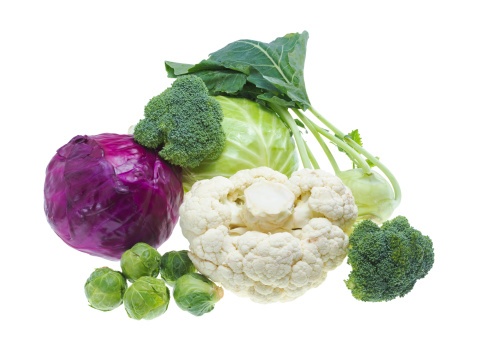 Cruciferous veggies like cabbage and Brussels sprouts: Due to the high amounts of fiber in these veggies, they help with gut health, kidney health, and liver health by keeping the body regular and removing toxins and waste. These foods also contain the phytochemical
Cruciferous veggies like cabbage and Brussels sprouts: Due to the high amounts of fiber in these veggies, they help with gut health, kidney health, and liver health by keeping the body regular and removing toxins and waste. These foods also contain the phytochemical 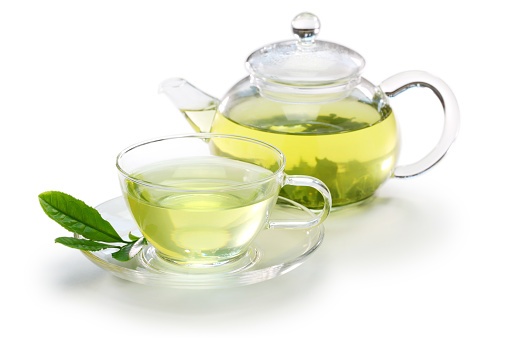 Green tea: Drinking liquids is always a wonderful and natural detox, and adding green tea to your water is extra helpful. It is high in catechin, a flavonoid, which speeds up liver activity and increases the
Green tea: Drinking liquids is always a wonderful and natural detox, and adding green tea to your water is extra helpful. It is high in catechin, a flavonoid, which speeds up liver activity and increases the 
 Have you ever noticed that during the cold and flu season, some people just don’t get sick no matter what? Or maybe you have wondered why after being exposed to the same virus, one person gets sick while the other doesn’t.
Have you ever noticed that during the cold and flu season, some people just don’t get sick no matter what? Or maybe you have wondered why after being exposed to the same virus, one person gets sick while the other doesn’t. Many of us know that yoga serves as a form of physical activity that increases flexibility for participants. Yoga focuses on putting the individuals in body poses that elongate muscles from head to toe. While this is very true, and I encourage anyone looking to improve their flexibility to incorporate yoga into their weekly workout routine, yoga has so much more to offer than just improvements in flexibility. In fact, the original context of yoga had very little to do with improving flexibility at all.
Many of us know that yoga serves as a form of physical activity that increases flexibility for participants. Yoga focuses on putting the individuals in body poses that elongate muscles from head to toe. While this is very true, and I encourage anyone looking to improve their flexibility to incorporate yoga into their weekly workout routine, yoga has so much more to offer than just improvements in flexibility. In fact, the original context of yoga had very little to do with improving flexibility at all.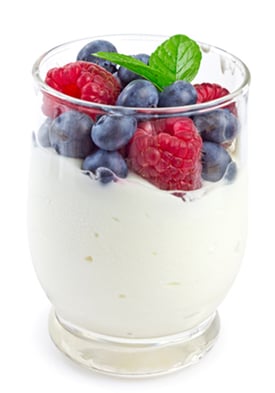 Probiotics are live bacteria and yeasts that are good for your health, specifically your digestive system. These “good” types of bacteria help to keep your gut working properly.
Probiotics are live bacteria and yeasts that are good for your health, specifically your digestive system. These “good” types of bacteria help to keep your gut working properly.